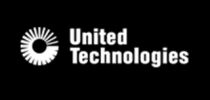New Research by Common Sense Is Call to Action for Better Choices About Tools and Teaching
SAN FRANCISCO, April 18, 2019 /PRNewswire/ -- As devices have flooded classrooms and schools have bought expensive education technology tools, teachers report that many of these resources go unused either because they aren't relevant, engaging, or effective or they haven't been properly trained to use them. The Common Sense Census: Inside the 21st-Century Classroom highlights a big disconnect between those purchasing edtech tools and those using them.
This first-of-its-kind research report also shows that there continues to be a homework gap for many students, affecting primarily schools with large populations of students of color and where at least 40 percent of students come from lower-income families. This limits the work teachers in those schools can assign because many kids still don't have access to digital devices or internet connectivity at home.
"This information is important for educators, administrators, and everyone else who has a stake in kids' healthy development and education to be able to make informed decisions about teaching with technology," said James P. Steyer, founder and CEO of Common Sense. "Schools have become ground zero for tech and all its related drama, all the promise and the pitfalls. Recognizing that digital technology is here to stay and will continue to evolve at a dizzying pace is critical. This research will help shape the conversation around what it takes to support and prepare students."
The good news is that educators are using digital citizenship curricula, teaching critical thinking, safe behavior, and responsible participation in the digital world, and they say it's largely effective in giving students tools to navigate a new world of technology where they are increasingly faced with distraction, cyberbullying, inappropriate content, and privacy violations.
The census, which surveyed more than 1,200 K-12 teachers nationally, reports that teachers:
-- Say classroom technology is not always effective. Many teachers don't
find the digital tools they use most often to teach specific subjects
very effective. For example, 93 percent of science teachers frequently
use core curricular programs to teach science, but only 36 percent say
the technology is effective.
-- Need support when integrating technology into their classrooms. Only
four in 10 teachers found their edtech professional development to be
"very" or "extremely" effective.
-- Overwhelmingly (91 percent) find digital citizenship programs effective
in preparing students as learners and leaders in today's increasingly
tech-driven world, with 72 percent taking on at least one digital
citizenship issue such as cyberbullying, hate speech, or privacy.
-- Believe news literacy is essential for students' modern education. The
inability to critically evaluate online information was the top tech
concern among teachers, with 35 percent reporting it was a frequent
problem for students. Yet fewer than 40 percent of educators regularly
teach this skill in their classrooms.
As more and more of kids' lives happen online and the boundaries between home and the classroom blur, it's time to shift the conversation from internet safety to digital citizenship to help students take ownership of their digital lives and introduce lifelong skills grounded in critical thinking.
In 2018, Common Sense updated our Digital Citizenship Curriculum, which is free to all schools, to address the real-world issues that kids face online. Taught by more than 700,000 educators in K-12 schools in the U.S. and abroad, the lessons are having a real impact, with 91 percent of educators surveyed saying it's effective in preparing their students.
With this research, Common Sense will continue to lead the conversation to help ensure teachers have the guidance and support they need to make their learning environments more equitable and that schools everywhere continue to use digital citizenship effectively to help students make smart, safe, and ethical decisions online.
About Common Sense
Common Sense is the nation's leading nonprofit organization dedicated to improving the lives of kids and families by providing the trustworthy information, education, and independent voice they need to thrive in the 21st century. Learn more at commonsense.org.
Methodology
The online questionnaire was administered to a nationally representative sample of 1,208 U.S. K-12 teachers in May 2018 by Rockman et al and national survey sampling consultants Peter Gold, Jordan Losen, and Joe Citoli (VeraQuest Inc.).
Press contact:
Tanya Schevitz
(415) 298-5532
tschevitz@commonsense.org
View original content to download multimedia:http://www.prnewswire.com/news-releases/new-research-by-common-sense-is-call-to-action-for-better-choices-about-tools-and-teaching-300834273.html
SOURCE Common Sense




